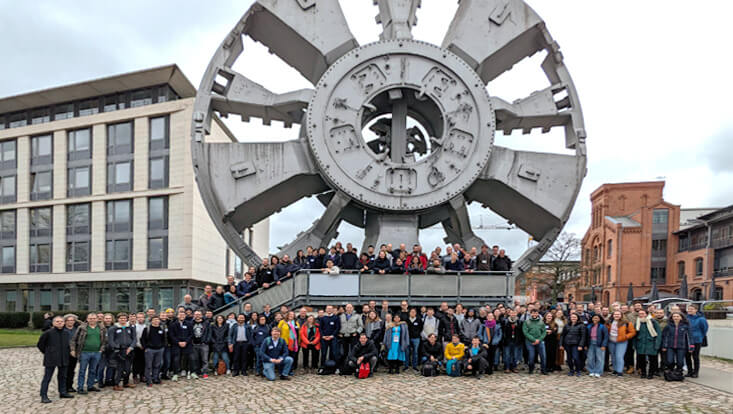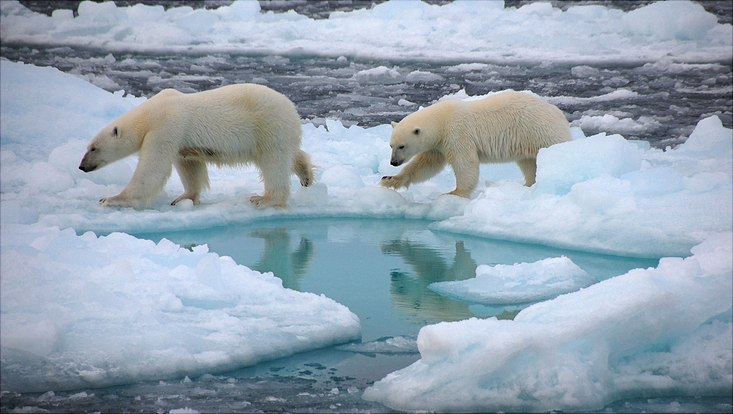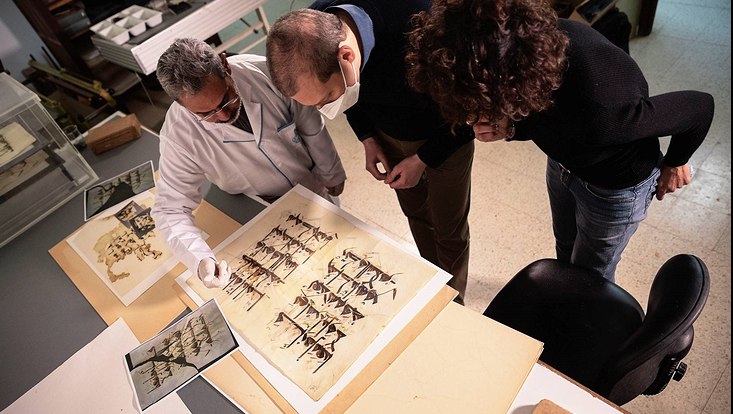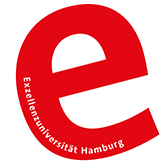What has been accomplished so far?Taking Stock of Quantum Universe
19 May 2023, by Newsroom editorial office

Photo: UHH/Grefe
Since 2019 Universität Hamburg has been a University of Excellence. A year earlier, it had applied for the distinction with 4 clusters. What has been accomplished since then and how has the funding been used? The Cluster of Excellence Quantum Universe talks about its activities in astro-, mathematical, and particle physics.
What is dark matter? What do gravitational waves tell us about the Big Bang and the evolution of the Universe? And how compatible are physical theories such as Einstein’s Theory of Relativity and quantum theory developed at the dawn of the twentieth century?
These are the kinds of questions that concern the Cluster of Excellence Quantum Universe, which began in 2006 as a funded collaborative research center and became what it is today in 2019. Four areas are devoted to answering these questions: the physics of the Higgs-Boson, dark matter, gravitational waves, and quantum theories. Roughly 80 researchers employed directly by the cluster work in these areas. They enjoy the support of another 200 colleagues from Universität Hamburg and DESY.
In the future, all researchers working on experiments in the cluster and their laboratories should be housed together in a single building, the architecturally ambitious HAFUN in Science City Hamburg-Bahrenfeld. Theoreticians will move nearby to the Wolfgang Pauli Centre. The proximity of theoretical and experimental cluster members should intensify their cooperation. This cooperation was a distinctive feature of Quantum Universe from the very outset.
Publication, funding, cooperation
So far, cluster members have produced over 1,000 scientific publications. Most of these are open access publications. Research highlights among doctoral and early career researchers are presented in English on the cluster’s website.
Quatum Universe takes part in numerous externally funded projects. One of the largest is KISS, which looks at AI for the rapid simulation of scientific data. Funded by the Federal Ministry of Education and Research, researchers here are developing AI-based simulation processes that, in comparison to standard methods, facilitate the faster, more flexible, and more efficient evaluation of research data.
As part of the so-called “CMS experiment” at the world’s largest particle accelerator, the LHC at CERN (European Organization for Nuclear Research) in Geneva, researchers in the cluster of excellence are seeking new, as-yet-unknown elementary particles. And with the development of innovative technology, they are also taking part in gravitational wave research at the European Space Agency ESA.
The cluster of excellence has received grants for several Emmy Noether groups, most recently for 2 in mathematics. Dr. Sven Moeller researches theories at the junction of particle physics, focusing on interactions between the smallest building blocks of matter, while Dr. David Reutter researches mathematical theories that describe the behavior of spatial fields with more than 3 dimensions.
The more important individual research has garnered grants for astrophysicist Prof. Dr. Stephan Rosswog: for his research on neutron stars, he received an ERC Advanced Grant worth €2.5 million. Freya Blekman was awarded a Helmholtz Distinguished Professorship in 2021 and appointed to Universität Hamburg and DESY. This further strengthened the cluster’s work in the field of experimental particle physics.
Conference, support for female academics and doctoral / early career researchers
Financial support for the cluster facilitated a series of workshops and conferences, even if some of these were smaller in scope than planned or took place digitally due to the pandemic. Highlights include the High-Energy Physics Conference of the European Physical Society in 2021 (EPS-HEP 2021) with over 1,000 online participants. The next conference will take place in Summer 2023 in Hamburg.
Thanks to the newly created Beate Naroska Guest Professorship program, 6 outstanding female researchers have been invited to Hamburg. These include, for example, the theoretical physicist Prof. Dr. Claudia de Rham from the Imperial College of London and Prof. Dr. Belen Gavela from Universidad Autónoma de Madrid.
One of the Quantum Universe’s main goals is to bring the best and brightest to Hamburg and to offer outstanding training and career opportunities. Doctoral students, postdoctoral researchers, and doctoral and early career research heads enjoy excellent conditions at the Quantum Universe Research School. There are currently around 80 doctoral students enrolled at the Graduate School. Roughly a dozen have already received their doctorates.
Projects such as Diversity Days, the Women’s Career Day, and Girls’ Day take place regularly in cooperation with the University or its other 3 clusters of excellence. The annual Physics Project Days that give upper-level high-schoolers an up-close look at research is also very successful.
Innovative formats for effective public relations
In addition to its participation in the established initiatives Knowledge on Tap and Wir wollen’s wissen, Quantum Universe has developed a series of new formats, for example, the gaming app Trapped in Gravity with information about black holes and gravitational waves.
The interactive exhibition How It All Began: Of Galaxies, Quarks, and Collisions took place at the Hamburg Museum of Work from 25 October 2022 to 7 May 2023. With its extensive accompanying program, it gave insight into the cluster’s research and attracted about 25,000 visitors. In April 2023, there was a performance of the opera Schöpfung (Creation) in the St. Katharinen Church. The opera was composed by the singer and composer Gloria Bruni, who was raised in Hamburg and is the daughter of a physicist.
Series taking stock of the clusters of excellence and the University of Excellence
In July 2019, Universität Hamburg was deemed a University of Excellence by the German Council of Science and the Federal and State Governments. It was one of only 11 universities and university collaborations in Germany to earn the distinction. It has received funding since November 2019.
Universities had to have at least 2 clusters of excellence to apply for recognition as a “University of Excellence.” Universität Hambur has even had 4 clusters of excellence since 2018. In this series, we present what the University of Excellence and the 4 clusters of excellence have accomplished so far.
In the next few days, you can also read our press releases taking stock of Universität Hamburg—University of Excellence.



